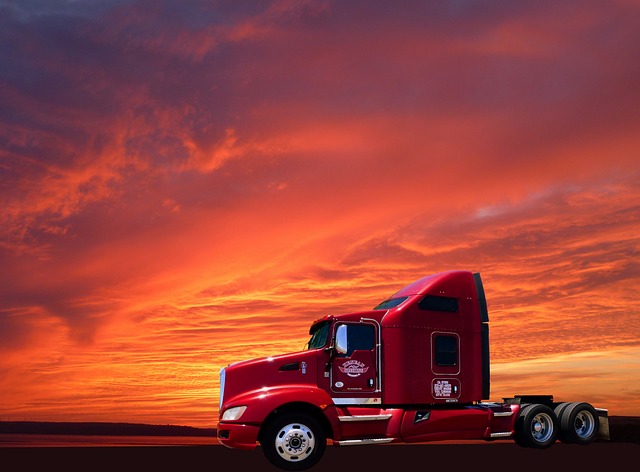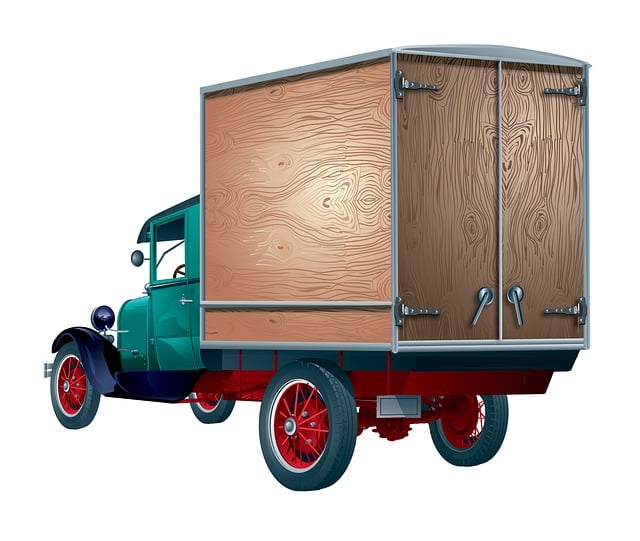For fleet operators in the transportation sector, securing robust physical damage coverage within their truck repair insurance frameworks is key to protecting fleet trucks from a range of unforeseen events, including collisions, theft, vandalism, and natural disasters. This specialized coverage not only mitigates the financial burden of vehicle repairs or replacements but also ensures operational continuity. Small fleet operators can benefit from tailored policies that provide affordable physical damage plans aligned with their unique needs, while larger fleets have access to comprehensive fleet insurance options designed to fit their specific requirements. It's crucial for all fleet sizes to review their coverage to match the particular risks they face. Investing in truck repair insurance that encompasses both physical damage and collision coverage is essential for safeguarding against financial losses due to accidents or non-collision incidents, ensuring fleet vehicle protection without compromising budget considerations. Fleet operators should prioritize this strategic approach to insurance for the resilience and longevity of their business operations.
When it comes to managing a fleet of trucks, safeguarding your vehicles against unexpected damage is paramount. This article delves into leveraging specialized insurance tools designed to protect your investment. We’ll explore the nuances of physical damage coverage for fleet trucks, shed light on truck repair insurance, and provide actionable strategies for small fleet operators seeking affordable physical damage plans. Additionally, we will guide you through the intricacies of collision coverage options for fleets and offer insights into securing comprehensive fleet insurance. Ensuring your trucks remain operational and your business resilient in the face of unforeseen events is our focus.
Maximizing Fleet Vehicle Protection with Physical Damage Coverage for Trucks

Fleet operators in the transportation sector can significantly enhance their vehicle protection strategy by incorporating comprehensive physical damage coverage into their truck repair insurance plans. This specialized coverage safeguards against unexpected events that lead to truck damage, such as collisions with other vehicles or objects, theft, vandalism, or natural disasters. By opting for fleet trucks physical damage coverage, businesses can mitigate the substantial costs associated with repairs and replacements, thus ensuring business continuity without financial strain.
When selecting the right physical damage coverage for fleet trucks, it’s crucial to consider the specific needs of your operation. Small fleet damage policies can be tailored to fit the size and scope of your operations, offering options that range from affordable plans suitable for smaller fleets to comprehensive coverage designed for larger trucking fleets. These insurance solutions are not just about repairing physical damages; they also provide peace of mind, knowing that your investment in trucks is protected, allowing you to focus on optimizing your fleet’s performance and service delivery.
Understanding Truck Repair Insurance: Ensuring Comprehensive Fleet Insurance Coverage

When it comes to safeguarding your fleet trucks from unexpected damage, having comprehensive fleet insurance coverage is paramount. A robust truck repair insurance policy should include physical damage coverage for fleet trucks, which addresses instances where your vehicles sustain damage not caused by collisions. This encompasses a wide range of potential damages, such as vandalism, theft, or natural disasters. It’s crucial to evaluate the extent of your coverage under this policy, ensuring it aligns with the specific needs and risks associated with your fleet operations.
Moreover, collision coverage for fleets is another critical component of a well-rounded insurance package. This aspect of fleet vehicle protection ensures that repair costs are covered when a truck is involved in an accident with another vehicle or object. For small fleet owners, it’s essential to consider affordable physical damage plans that offer the necessary protection without straining your budget. By opting for comprehensive fleet insurance, you can rest assured knowing that your trucks are safeguarded against a variety of risks, allowing you to focus on the efficient operation and growth of your trucking business.
Strategies for Small Fleet Damage Policies: Finding Affordable Physical Damage Plans

When it comes to safeguarding your small fleet against unexpected truck damage, having a robust physical damage coverage plan is paramount. Fleet trucks are indispensable assets for any operation, and the costs associated with repairs or replacements can be substantial. To navigate this landscape, small fleet owners should explore truck repair insurance options that cater specifically to their needs. These policies are designed to provide comprehensive fleet insurance, covering both collision and comprehensive risks. By opting for affordable physical damage plans tailored for small fleets, operators can rest assured that their vehicles are protected against a wide array of potential damages, from minor accidents to major mechanical failures. This financial safety net ensures that downtime is minimized, and operations continue without significant disruptions caused by unforeseen vehicular issues.
In the quest for cost-effective fleet vehicle protection, it’s crucial to understand the nuances of the insurance market. Trucking fleet insurance providers offer a variety of coverage options, and discerning which plan aligns with your budget and risk profile is a strategic decision. Affordable physical damage plans often come with customizable features that allow you to tailor the policy to the specific risks your fleet faces. This approach not only saves on premiums but also provides targeted protection where it’s most needed, making it an intelligent investment for small fleet operators. By carefully evaluating each aspect of these insurance tools and considering the long-term financial health of your business, you can find a balance between coverage and cost, ensuring your fleet remains operational and your business resilient against unexpected truck damage.
Navigating Collision Coverage for Fleets: A Guide to Trucking Fleet Insurance Options

When it comes to safeguarding your fleet trucks from unexpected damage, understanding and leveraging the right insurance tools is paramount. Collision coverage for fleets is a critical aspect of trucking fleet insurance, designed to protect against damages resulting from vehicular collisions with other objects or terrain. Opting for physical damage coverage fleet trucks ensures that your investment in these vehicles remains secure, as it covers repairs due to non-collision events such as fire, theft, or vandalism.
Truck repair insurance is a comprehensive solution tailored for small fleets, offering protection against costly repairs without depleting your operational budget. This coverage not only includes collision incidents but also extends to comprehensive fleet insurance, which safeguards your vehicles from unforeseen events like natural disasters, falling objects, or animal collisions. By exploring affordable physical damage plans, fleet operators can find the right balance between financial protection and cost-effective operations, ensuring that their vehicles are well-protected without straining their budget.
In conclusion, effective fleet management necessitates robust insurance strategies that protect against unexpected truck damage. By leveraging comprehensive fleet insurance, small to medium-sized trucking operations can secure affordable physical damage plans tailored to their specific needs, ensuring fleet vehicle protection through coverage options like physical damage coverage for trucks and collision coverage for fleets. Truck repair insurance is a critical component of these strategies, offering peace of mind and financial security in the event of costly repairs or accidents. With careful planning and understanding of the available policies, every trucking fleet can navigate the complexities of insurance to safeguard their investments and maintain operational continuity. It’s clear that investing in the right insurance tools is not just a best practice—it’s an indispensable measure for the resilience and longevity of your fleet operations.
